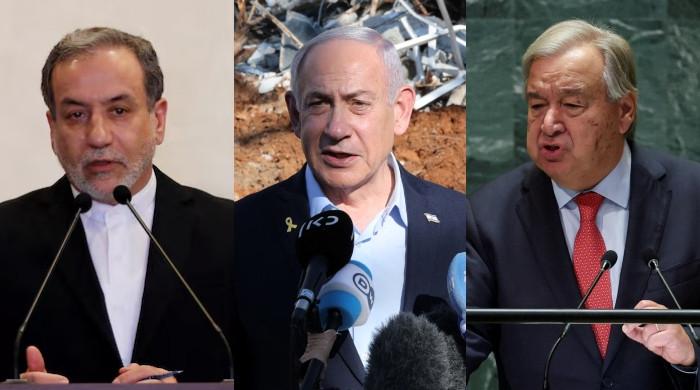World leaders have issued strong and varied responses after US forces launched air attacks on three Iranian nuclear sites on Sunday, in a dramatic climb of tensions in the Middle East.
The strikes, confirmed by the White House at dawn on Sunday, attacked the nuclear facilities of Iran, Natanz and Isfahan. The administration of the United States framed the attacks as a response to the continuous enrichment efforts of Tehran and as a warning to deter a greater escalation in the continuous conflict with Israel.
President Donald Trump described the operation as a “necessary and provided act to avoid a greater conflict.”
The reaction of Global Capitals was fast, from the firm support in Israel to the strong condemnation of Iran and its allies. The United Nations and several countries requested immediate decallation and a return to diplomacy.
A bold decision that will change the story: Netanyahu
Israeli Prime Minister Benjamin Netanyahu issued a statement congratulating President Trump, saying:
“Congratulations, President Trump. His bold decision to aim at Iran’s nuclear facilities with the powerful and fair powerful power of the United States will change history … History will record that President Trump acted to deny the most dangerous regime in the world the most dangerous weapons in the world.”
‘A serious violation of the law int’l’: Iran fm Araghchi
Iranian Foreign Minister Abbas Araghchi condemned the strikes in a message posted in X (previously Twitter), calling them a serious violation of international standards:
“The United States, permanent member of the United Nations Security Council, has committed a serious violation of the UN Charter, International Law and TNP by attacking the peaceful nuclear facilities of Iran. This morning’s events are outrageous and will have eternal consequences.”
He added that they will “reserve all the options to defend their sovereignty, interest and people”, citing the right to self -defense under the UN letter.
‘A direct threat to peace and security’: the UN Chief
The UN Secretary General, António Guterres, expressed a deep concern for the attack, declaring:
“I am seriously alarmed by the use of force by the United States against Iran today. This is a dangerous escalation in a region that is already at the limit, and a direct threat to international peace and security … There is no military solution. The only way to follow is diplomacy. The only hope is peace.”
Global reactions: Demand diplomacy and moderation
New Zealand Foreign Minister Winston Peters said the developments were “extremely worrying”:
“The current military action in the Middle East is extremely worrying, and it is essential that an additional escalation is avoided. We urge all parties to return to conversations. Diplomacy will deliver a more lasting resolution than more military action.”
An Australian government spokesman echoed the call to calm:
“We have become clear that the Iran Nuclear and Balistic missile program has been a threat to international peace and security … We continue to ask for the decalation, dialogue and diplomacy.”
The Mexican Ministry of Foreign Affairs issued a statement on X and urge the “Diplomatic Dialogue for Peace” and emphasizing its commitment to a pacifist foreign policy.
Similarly, Venezuela’s Foreign Minister Yvan Gil described the action of the United States as “military aggression”, added:
“Venezuela condemns US military aggression against Iran and demands an immediate cessation of hostilities.”
The Cuban president, Miguel Díaz-Canel, also resorted to X to condemn what he called a “dangerous climb”, accusing the United States of violating the UN letter and pushing the region to the crisis.
American legislators register mixed reactions
In Washington, the reaction to strikes revealed deep divisions within the Congress, and Republicans greatly support the president’s decision and the warning of overreach democrats and possible long -term conflicts.
The president of the Senate Armed Services Committee, Roger Wicker, said the operation was commendable, but warned of “very serious options ahead.”
The president of the Senate Foreign Relations Committee, Jim Risch, described it as a necessary step in support of an ally:
“This war is Israel’s war, not our war, but Israel is one of our strongest allies and is disarming Iran for the good of the world … there will be no American boots in the field in Iran.”
Others disagreed.
“This is not constitutional,” said representative Thomas Massie, referring to the authority of Congress to declare war.
The president of the House of Representatives, Mike Johnson, defended the president, declaring:
“The president gave the leader of Iran all the opportunities to reach an agreement, but Iran refused to commit to a nuclear disarmament agreement.”
In contrast, Democratic leader Hakeem Jeffries accused Trump of deceiving the nation and ignoring Congress:
“Donald Trump has the total and total responsibility of any adverse consequence that flows from his unilateral military action.”
Representative Alexandria Ocasio-Cortez went further, saying:
“The disastrous decision of the president to bomb Iran without authorization is a serious violation of the Constitution … it is absolutely and clearly reason for the accusation.”
Senator Tim Kaine criticized what he described as “horrible trial”, while representative Rashida Tlaib said that strikes remember “endless decades of war in the Middle East … All based on the lie of ‘weapons of mass destruction’.”
The former congressman Max Rose, now votevets main advisor, described the illegal action and warned that “this conflict is his and the Republicans who have annulled all their responsibilities.”




